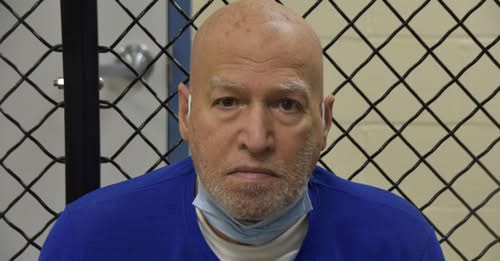George Legere Dies in Custody While Facing Murder Charge in Cold Case Over 50 Years Old
A shocking turn of events has unfolded in a decades-old murder case as George Legere, a man recently charged in connection with a cold case more than 50 years old, has died while in custody. Authorities confirmed that Legere passed away in a state correctional facility while awaiting trial, marking a sudden and unexpected end to one of the oldest unsolved homicide investigations ever revived in the region.
Legere, who was in his late seventies, had been arrested earlier this year after advances in forensic technology and renewed investigative efforts linked him to a murder that occurred more than half a century ago. The case, which had haunted investigators and the victim’s family for generations, gained new momentum when DNA evidence allegedly tied Legere to the crime. His arrest was seen as a long-awaited breakthrough — a moment that offered hope for justice after decades of unanswered questions.
According to officials, Legere’s death occurred peacefully in custody, with preliminary reports suggesting natural causes. The Department of Corrections has stated that there were no signs of foul play, and an autopsy will be conducted to confirm the official cause of death. His passing effectively closes the criminal proceedings against him, though the investigation remains a point of historical and emotional significance for those connected to the case.
The murder at the center of this long-running investigation dated back to the early 1970s, when a young woman was found brutally slain under mysterious circumstances. Despite extensive police work and public appeals, the case went cold for decades, with no arrests and little progress. It wasn’t until recent years — with the help of modern DNA testing and genealogical research — that investigators were able to identify Legere as a suspect.
Prosecutors had described the case as “a triumph of persistence and science,” while the victim’s surviving relatives had expressed both relief and heartbreak at the news of Legere’s arrest. Many had believed they would never see the day when someone would be held accountable for the loss of their loved one. For them, his death in custody brings a complicated mix of emotions — closure, frustration, and lingering grief.
“After so many years, we were finally beginning to see a path to justice,” one family member said in a statement. “Now that chance is gone, and we’re left with even more questions. But we’re still grateful to the investigators who never gave up.”
Law enforcement agencies involved in the case have echoed those sentiments, noting that while Legere’s death means the legal process has ended, the reopening of the investigation brought renewed attention to cold case work and underscored the importance of modern forensic advancements. Detectives who worked tirelessly to bring the truth to light have stated that their goal was always to uncover what really happened — and to honor the memory of the victim and their family.
Legere’s death also reignites broader discussions about justice delayed and denied. In many long-dormant cases, aging suspects, witnesses, and evidence can all complicate the pursuit of accountability. For families like the one at the heart of this story, decades of waiting often lead to bittersweet outcomes — where the truth comes to light just as the opportunity for a trial fades away.
Though the case will never see a courtroom resolution, many who followed it believe the investigation’s reopening served an important purpose: it proved that justice, no matter how long delayed, can still be pursued with determination and innovation.
As the community reflects on this development, the name George Legere will forever be linked to a case that spanned generations — a story of loss, persistence, and the tireless efforts of those who refused to forget.
Even in the absence of a final verdict, the memory of the victim endures, and the pursuit of truth stands as a testament to the power of time, technology, and hope.

Leave a Reply